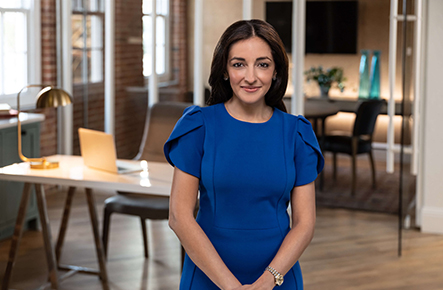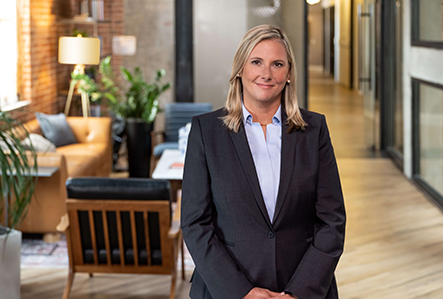Divorce among the 50+ population is rising, creating retirement challenges for the newly single.
Last year, a longtime client introduced his daughter to Eileen Allgrove, an advisor with Fiduciary Investment Advisors in Windsor, Connecticut. The daughter was in her 50s and in the middle of an amicable, but complicated, divorce.
She worked part-time until she had children; her husband was the family’s primary breadwinner for many years. Adding a wrinkle to the split: The husband had taken over his wife’s family’s business.
One way to navigate waters as challenging as these is to enlist the help of financial experts like Allgrove. As an independent Registered Investment Advisor (RIA), she doesn’t earn commissions for opening financial accounts on clients’ behalf or selling products. “Working this way keeps the relationship honest and transparent. That kind of trust is something divorcing clients particularly appreciate,” Allgrove says.
Why no commission-based work? As an RIA, Allgrove’s company focuses on suggesting strategies that take clients’ entire financial lives into consideration. It also means the firm’s advisors are fiduciaries who are legally bound to work in their client’s best interests.
The rise in Baby Boomer divorces
Allgrove’s client is one of many older Americans going through a so-called “gray divorce.” She has plenty of company: The U.S. divorce rate among adults age 50 or older has doubled since the 1990s.
“By the time they’re in their 50s, many couples have children who are grown and flown,” Allgrove says. “It’s not uncommon for people who spent years raising their families to suddenly wake up, experience that empty nest and realize they now want different things from their spouses. So they part ways.”
Some later-life splits can add significantly to people’s personal happiness. However, they can also undermine both partners’ financial stability.
“Gray divorces can hit both partners hard,” says Cindy Hounsell, president of the Women’s Institute for a Secure Retirement. “However, when you look at U.S. statistics, retirement-aged, single, divorced women are the most likely to end up in poverty.”
Even wealthy women can get financially blindsided by a late divorce, Hounsell adds. The main reason: lack of retirement planning.
A number of factors come into play, she says. For instance, some women temporarily—or permanently—step off the career track to have children, as did Allgrove’s new client. During that time, they may also stop contributing to their retirement plan. That can be problematic, since in the U.S., women who make it to age 65 tend to live an average of 2.4 years longer than men, according to the Social Security Administration.
Building a financial life from scratch
One particular challenge for divorced people is ensuring that their retirement funds—which typically are cut in half when they leave a marriage—will still be enough to support them.
Some partners assume they are eligible for half of their ex-spouse’s pension or workplace 401(k) if they split up. “However, that also assumes there’s actually money in the spouse’s retirement plan to claim,” Hounsell says. “By the time a couple divorces, one or both partners could have spent those funds or moved them.”
Divorced women, in particular, often put their children’s and grandchildren’s financial needs ahead of their own retirement needs, Hounsell says. As such, she cautions that trying to hang on to a too-expensive family home or pay for 100 percent of a child’s college costs, for example, can take too big a bite out of any divorced person’s nest egg.
“These issues are especially critical for later-life divorcees to face, since they have so few earning and investing years left before retirement,” Hounsell explains. However, working with an independent RIA can help people determine how best to start building their post-divorce financial lives.
Indeed, in Allgrove’s client’s case, the most pressing issue was that she was in her 50s with no retirement assets in her own name—and she didn’t have much time left to bolster her savings before age 65, the milestone year when many people consider retiring. She had planned to draw ongoing income from the longtime family business, as well as tap retirement funds that were in her husband’s name.
With those options off the table, Allgrove focused on helping her develop her own retirement plan, separate from her husband’s. They negotiated a five-year alimony agreement and a structured property settlement that required her husband to pay her a portion of their family company’s financial value over several years. Allgrove also helped her client move her cash settlements into retirement investments.
Removing retirement risks
Of course, not all gray divorces are so neat and tidy. John Krambeer, founder and CEO of Camden Capital, an RIA firm in Los Angeles, recently worked with a client who was going through an especially acrimonious later-life divorce.
The client, who worked for a Silicon Valley tech company, was the primary earner. Her husband borrowed heavily against his wife’s earnings and corporate stock options. He then entered into extremely risky investment agreements with ethically questionable people.
“When she came to us, our client, like many divorced people or really anyone looking for the right advisor, wasn’t sure who to trust with her money,” Krambeer says. However, as an RIA, Krambeer’s firm was able to step in as the woman’s fiduciary. On his client’s behalf, they slowly extricated her from her husband’s deals and created a long-term financial plan that allowed her to retire early and spend extra time with her two children.
As an RIA firm, “we get to find appropriate and tailored solutions for our clients every day,” Krambeer says. “Our goals—thank goodness—aren’t to meet sales quotas or pile up commissions. Our sole aim is to do what’s financially right for our clients.”
Wall Street Journal Custom Content is a unit of The Wall Street Journal advertising department. The Wall Street Journal news organization was not involved in the creation of this content.
1. Stepler, Renee, “Led by Baby Boomers, Divorce Rates Climb for America’s 50+ Population,” Pew Research Center, March 9, 2017.
The named advisory firms (“Advisors”) custody some or all of their assets with Charles Schwab & Co., Inc. (“Schwab”). The Advisors are independent and not affiliated with Schwab, and their personnel are not employees or agents of Schwab. This is not a referral to, endorsement or recommendation of, or testimonial for the Advisors with respect to their investment advisory or other services. Schwab Advisor Services™ serves independent investment advisors and includes the custody, trading and support services of Charles Schwab & Co., Inc. Member SIPC. (1118-8URS)








